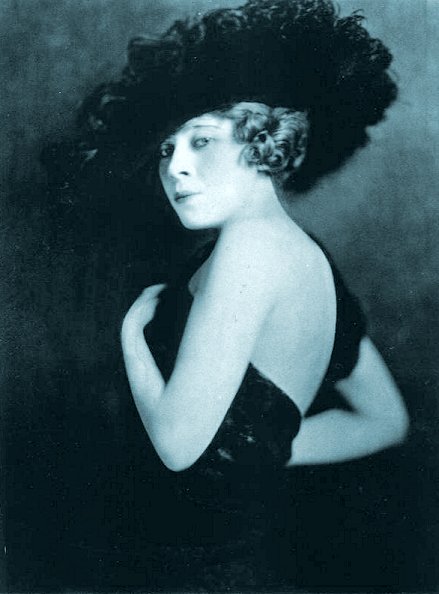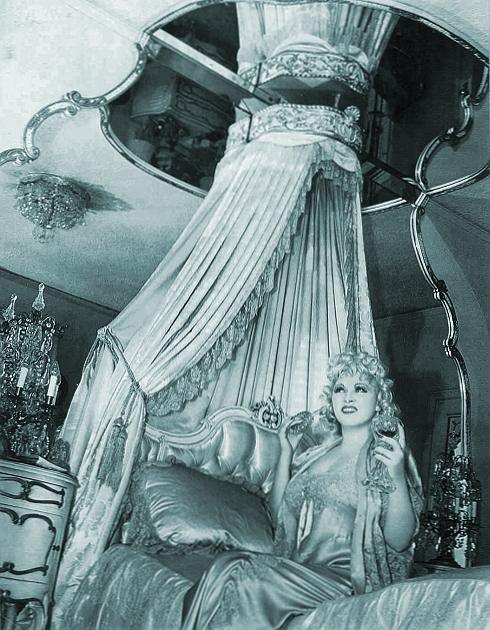 Despite Mae's happy recollections of Guido's tenderness, she knew only too well that he had an extremely volatile side. He was possessive and flew into jealous rages, verbally and sometimes physically assaulting other men who expressed even passing interest in Mae. He spied on her, listened in on her telephone calls, and loomed over her constantly. She told of tireless efforts to keep him ignorant of other men, even those who were simply acquaintances, fearing his reaction.
Despite Mae's happy recollections of Guido's tenderness, she knew only too well that he had an extremely volatile side. He was possessive and flew into jealous rages, verbally and sometimes physically assaulting other men who expressed even passing interest in Mae. He spied on her, listened in on her telephone calls, and loomed over her constantly. She told of tireless efforts to keep him ignorant of other men, even those who were simply acquaintances, fearing his reaction. Once Mae provoked Guido to fight over her. She wrote,
D. would hunt all over any town we played to find the best food. There was a little restaurant in Norfolk we would go to after the theatre. One afternoon after the matinee, dressed as we were at the theatre, D. in a cutaway and me in a long black velvet dress, a small hat with a bunch of egrets and a big black fur coat with a belt around it, we were seated at a table. Two men walked in, discussing the vaudeville show at the Colonial.Infidelity and rumors of infidelity caused their relationship to unravel. Mae was attracted to other men and secretly carried on affairs; Guido naturally responded by becoming more possessive and violent. He bribed the phone operators to report her phone calls to him. Guido once confronted a suitor in his office and pounded on the glass-topped desk until it broke. Is it any wonder why Guido took out a $50,000 insurance policy with the Hartford Insurance Company "to protect his fingers?""How did you like the blonde?" asked one.
"Just a dressed up chippie, that West girl."
I heard them and I looked at D. "What are you going to do about it?" I asked D.
"What do you want me to do?" D. said, ready to do it.
"That's up to you." I said.
D. got up from the table and walked over to the men. "You have insulted my companion." D. leaned over and led off with a clip right on the chin of the first offender. D. was very strong and he always hit first in a fight, and second and third if he could. The other diner picked up a dish of spaghetti and threw it at D. like a custard pie in a comedy. The spaghetti ran down the front of his dress shirt and spaghetti hung over his hair like red seaweed.
Chairs, dishes, and even tables were being hurled around the room. The two men fled, leaving D. sprawled on the floor, tomato sauce on his face. I went over and put my arms around him.
He said, "That is all I need. I have received my reward."
One night Guido accidentally discovered a note which was passed to Mae at Giolito's, an Italian restaurant they frequented in New York. He read the note aloud, "I love you so much I can't stand it any more. I must meet you and talk to you. I don't care if that man is your husband." Guido was understandably outraged.
Mae tried to pacify him by claiming the note was meant for another woman. However, the next time Mae and Guido dined at Giolito's, Mae, under the excuse of visiting the powder room, privately met her would-be lover and warned him, "Look, there would be a murder if Guido knew you meant the note for me." Sometime in 1916 Guido spoke to Mae's parents at their Brooklyn home, "I kill the next man that tries to take her away from me!" Mae's parents did not know she was already married to Guido. Her father said, "None of those Italian knife tricks!" Her mother, Mathilda, asked her to break up with Guido.
Mae's mother exerted a powerful influence over her daughter; she was Mae's greatest benefactor and well-wisher. Mae had become a actress to a great extent because of the desire of her mother, who attempted to guide Mae into the successful career she could not have. Mae's closeness to Guido alarmed Mathilda, and his threats of violence if he couldn't have Mae all to himself instilled maternal terror. "My mother didn't like it. She had ambitions for me. She said I was only interested in myself and not in my career." When Mae showed no inclination to leave Deiro's side, "Mother pointed out other married couples to me. . . Showed me how their lives were wasted." Mathilda conveyed her disapproval and made it apparent that Mae's love sickness and distraction were making her devoted mother miserable. Mae came around to seeing that Mathilda "was right, and when I realized that, I got rid of him."
Mae left for Chicago and disappeared. She wrote, "I see now it was a cruel thing I did to D., breaking without a word of parting, going off to Chicago. D. carried on like a Latin maniac, calling Mother at all hours of the night, begging to know where I was, trying to find me. He threatened to have the police search for me, then started drinking heavily, and finally ended up in a hospital, very ill with pneumonia."
Mae concluded, "It was not an easy time for me. I was tempted to call D., but I had promised Mother I wouldn't call him and would try to forget him." Mae may have experienced difficulty with men before, but after the demise of her relationship with Guido, she grew ever more detached. This failed love affair was a turning point in her life. Guido was the only man she had ever really loved with her whole heart and her subsequent relationships with men were based simply on physical attraction. She was too busy with her career to become emotionally involved again.
Mae filed for divorce from Guido Deiro on the grounds of adultery on July 14, 1920. The divorce was granted by the Supreme Court of the State of New York on November 9th of that year. Guido did not appear at the hearings. Mae later said, "Marriage is a great institution. I'm not ready for an institution."
The two did not see each other again from that day in 1916 when Mae abandoned him until 1943, when Guido searched out Mae in Hollywood after she had become a film star. He showed her an article he had written titled, Mae West and Me, which he planned to sell to Look magazine. She was displeased and said, "I have never wanted to flaunt my romances in public." Guido was a true gentleman, for despite the financial losses he had suffered during the years after the great depression (he really needed the money which he could have earned by selling his article), he handed the article over to Mae instead. They became friends again and Guido would sometimes visit her at her penthouse at the Ravenswood Apartments in Hollywood.
 Mae gave this photograph to Guido when they resumed their friendship again in the mid-1940s. |
Why did Mae insist that her marriage to Guido be kept secret? Two reasons come to mind: 1. Her parents would not allow her to get married as they knew it would ruin her career, and 2. She was already married. While on tour in Milwaukee on April 11, 1911, Mae had married her vaudeville partner, Frank Wallace, due to the pleading of Wallace and the urging of Etta Wood, an older cast member on her show bill. Wood insisted to the seventeen-year-old Mae that her promiscuity would get her in trouble and she should get married and play it safe. She said, "Listen, Mae, with all these men tomcatting around, sooner or later something's going to happen to you. Marry Wallace and be respectable."
Mae agreed to marry Wallace only a few hours before the ceremony. Mae may have feared she was pregnant. At the court house she discovered that she legally couldn't get married, as she was under the minimum age in Wisconsin. She got around that hurdle by lying about her age to the justice of the peace, claiming to be 18. Mae always regretted the decision and made Wallace solemnly promise that he would never reveal their marriage to anyone. She was especially afraid that her parents might find out.
Wallace never lived with Mae and she left him completely after a few months. Mae wrote, "I was sorry for Wallace that I wasn't in love with him. I did not want the marriage to last. . . He went out of my life, except for a legal echo, years later." In 1942 Wallace returned to haunt Mae with a divorce settlement and was awarded a considerable part of her fortune.
Mae's secret marriage to Wallace was probably the reason Mae married Guido Deiro under an assumed name -- Catherine Mae Belle West. (The Deiro Archives at CUNY contain a photocopy of the divorce decree; the marriage certificate we expect will be discovered at a future date.) To protect herself from embarrassing charges of bigamy, Mae consistently denied her marriage to Guido and did not mention his name once in the ten pages from her autobiography devoted to their romance, referring to him simply as "Mr. D." The divorce decree begs the question: why would Mae need to officially divorce Guido if they were never legally married?
Guido, on the other hand, always maintained until his death that he married Mae West, a statement which we accept without reservation.
Both Guido and Mae were known to marry often and impetuously. From 1913 to 1916 Mae and Guido were under pressure to maintain appearances and stay out of trouble, as at that time living in cohabitation without being married was not only a public outrage, but against the law in most jurisdictions. Watts and Eells/ Musgrove concluded that this is what caused Mae to marry Wallace, her first husband, and Guido to marry his first wife, Tatro. To be frank, it would have been easy, with the lack of easy access to public records in those days, for both of them to have been bigamists.
Sources:
Jill Watts, Mae West: An Icon In Black and White (Oxford, England: Oxford University Press, 2001)
Emily Wortis Leider, Becoming Mae West (Da Capo Press: 1997)
Karl Fleming and Anne Taylor Fleming, The First Time (Simon & Schuster, New York: 1975)
C. Robert Jennings, Mae West: A Candid Conversation with the Queen of Vamp and Camp, "Playboy" (January 1971)
Mae West, Goodness Had Nothing To Do With It (Englewood Cliffs, NJ: Prentice-Hall, Inc., 1959)
George Eells and Stanley Musgrove, Mae West: A Biography (New York: William Morrow and Company, Inc., 1982)
"Who Was First? The Deiro Brothers Controversy" Accordion News Magazine (New York: August 1935)
Recollections About My Father: Conversations with Guido Deiro Jr. (Las Vegas: Count Guido Roberto Deiro, 2001)
Back
Next